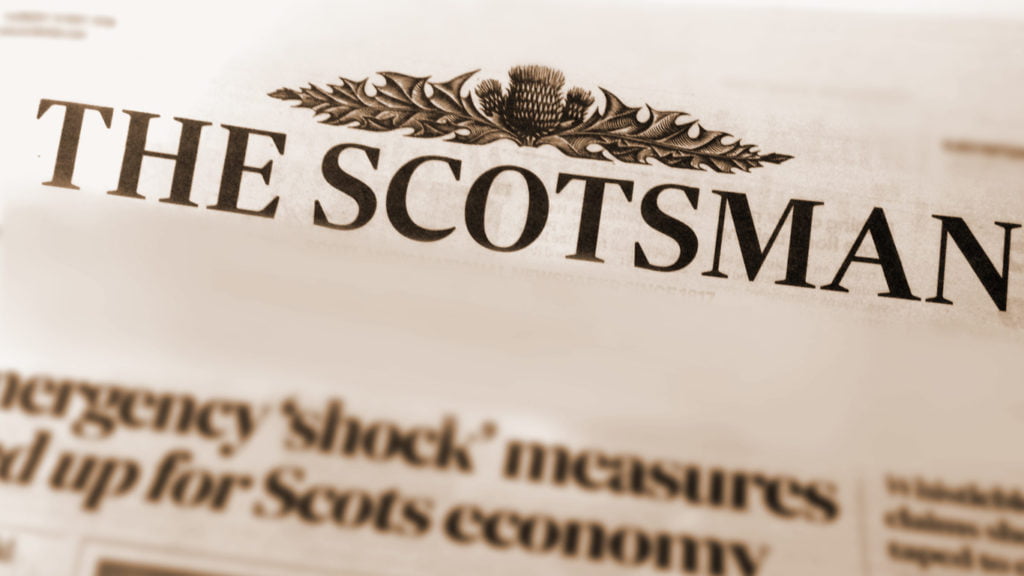This article by Geoff Mawdsley appeared in the Scotsman
It looks like the concordat between the Scottish Government and the Convention of Scottish Local Authorities [CoSLA] will survive another year at least. But as it currently stands, this agreement is not sustainable in the medium term. It would be better if the Scottish Government accepted this and started to put in place a new relationship with councils, built to last and based on clear principles of local autonomy and accountability.
It is not that the concordat is all bad. It reduced from £2.7 billion in 2007/08 to just over £1 billion in 2008/09 the level of grants to councils which can only be used for specific purposes determined by central government. This was an important blow for greater local autonomy and discretion. In addition, allowing councils to retain any efficiency savings provided a key incentive towards better management and improved delivery of services.
This suggests a government committed to localism. Yet, the signals have been mixed.
The Scottish Government used its financial muscle to negotiate a council tax freeze, providing, no doubt, welcome relief for local taxpayers. However, it only emphasises the unequal nature of the negotiations.
Since the Scottish Government largely controls the purse strings, it holds the whip hand and councils have little option but to accept the extra money on offer with all the strings attached. These strings come in the form of costly commitments to deliver central policy objectives, such as free school meals and smaller class sizes.
Of course, such commitments, along with the council tax freeze, will be welcomed by many. But they continue a damaging centralising trend.
Negotiation is preferable to enforcing spending caps on local authorities. But the council tax freeze still represents the centre exerting its control over local taxation. Equally, if local democracy is to mean anything, then councils need the freedom to decide their own priorities based on the manifestos on which they were elected. If a local community is not happy with the performance of an administration, then they have the power to vote them out at the next election.
Such centralisation of power and responsibility has been going on for many years under governments of various political persuasions. It certainly didn’t start under the SNP administration which has taken some steps to reverse it. There is still time for this administration to go further in the direction of greater decentralisation. However, it needs to make up its mind where it stands fast and then set out clearly where it wants to go.
There is much to be gained by greater devolution of power to local communities and the wider range of approaches it encourages. Diversity is one of Scotland’s defining characteristics as a country. Sensible policy recognises this and builds unity through accepting this diversity.
Such diversity is also the key to better public services, demonstrated by other European countries which have gone down this path and seen real improvements in the performance of their public services. Locally-delivered services can respond far better to the different needs and priorities of their areas. In turn, diversity of provision drives innovation as we find new and better ways of doing things. These methods are then emulated by others with the process raising standards across the board.
Further, a renewed commitment to local empowerment will help to revive local democracy and local citizenship, with greater interest in local elections and wider participation in the activities of local communities.
Greater centralisation of power does nothing to help central governments either. It simply perpetuates a vicious circle in which the more ministers interfere in local affairs, the more they are held responsible for poor performance, while the more they are blamed, the more they interfere. It would be to everyone’s benefit if this vicious circle was broken.
So what should this new relationship between central and local government in Scotland look like? Reform Scotland believes it should be based on two clear principles.
First, we need to restore local accountability by clarifying who does what. That way everyone will know the respective responsibilities of the Scottish Government and local government. This should be underpinned by a commitment to local autonomy with tasks carried out at the lowest administrative level possible. We can achieve this by giving local authorities responsibility for areas not specifically reserved to the Scottish Parliament. Such an approach governs the relationship between central and local government in a number of European countries and is also the principle that governs the relationship between Westminster and Holyrood.
Second, we should enable councils to become less dependent on central grant and raise the bulk of what they spend in local taxation. This is essential if councils are to have greater autonomy and be more accountable to their local communities for the decisions they take.
It will give them a real incentive to provide the highest quality of service at the lowest possible cost which will in turn attract people and businesses and therefore extra revenue.
Currently, councils have total discretion over only 9% of their tax income stream – one of the lowest levels in Europe. To raise this proportion, councils should be given, over time, control of a broader range of taxes. As a first step business rates should be returned to local control.
Such an approach is consistent with a broader commitment to the devolution of power in society. Achieving it would be much simpler if the Scottish Government was itself responsible for raising more of its own revenue as we advocated in our recent report ‘Fiscal Power’.
The SNP Government has no problem accepting that Scotland needs greater financial autonomy and accountability. It is time we applied the same principles to Scottish councils.
Geoff Mawdsley is director of Reform Scotland, an independent, non-party think tank which aims to set out better ways of delivering increased economic prosperity and more effective public services.
